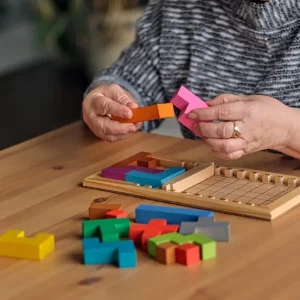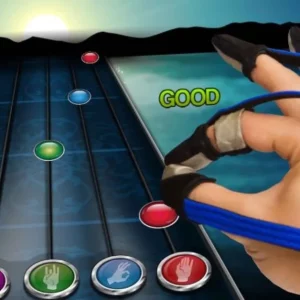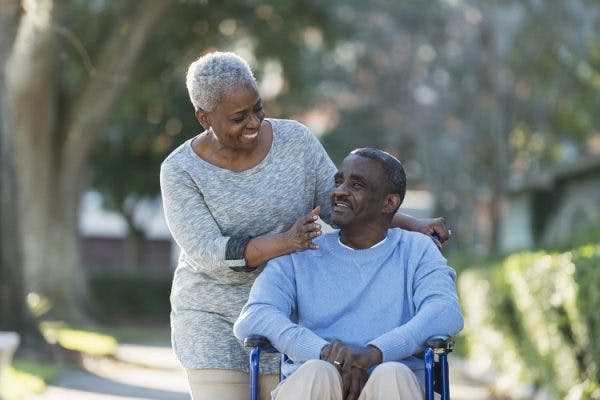Lack of empathy after brain injury can cause TBI patients to appear more self-centered than they intend. Brain injury and lack of empathy should not be interpreted as selfish behavior. The brain injury has simply made it harder for the individual to identify with the emotions of others.
Today you will learn why a brain injury can lead to a lack of empathy, plus what therapies can help people regain their empathetic skills.
Causes of Lack of Empathy After Brain Injury
Empathy is the ability to see things from another person’s perspective and feel what they feel.
Many areas of the frontal lobe are essential to the execution of empathy. For example, the right supramarginal gyrus helps people overcome egocentric bias (self-centeredness) when making decisions. The orbitofrontal cortex is an area of the brain that helps us react to another person’s feelings. Therefore, if any of these brain regions become damaged, a lack of empathy can occur.
Other cognitive and behavioral problems that can accompany a lack of empathy after a brain injury include:
- Childish behavior
- Apathy or low motivation
- Disinhibition
- Aggressive behavior
It’s important to note that even though a person may display these behaviors, they may not be fully responsible for them. Family members and friends should try not to take their loved one’s words or actions too personally.
Alexithymia and Lack of Empathy
Sometimes TBI patients can still empathize with others, but they have trouble processing their emotions. This condition, called alexithymia, is also common in individuals with autism.
Alexithymia causes difficulties in identifying, describing, and processing one’s own emotions and those of others. It also makes it hard to distinguish bodily sensations from emotional feelings.
This can lead people to seem insensitive and non-empathetic when in fact they do experience the emotions of others. They just do not know how to react.
It can be difficult to distinguish alexithymia from a true lack of empathy. A neuropsychologist can provide a proper diagnosis and teach individuals ways to process emotions again.
Is Lack of Empathy After Brain Injury Permanent?
Some brain injury side effects, such as a lack of empathy, can go away on their own. As their frontal lobe injury heals, you may notice your loved one becoming more responsive to others again.
Even if this does not occur naturally, it may still be possible to relearn empathy. Empathy is a skill, and like all skills, it can be improved through deliberate practice.
This is what the field of positive psychology is based on. Positive psychology, as the name suggests, is a method used to help train the brain to rest in more positive states.
For instance, by writing in a gratitude journal daily, you can help train the brain to notice more things to be grateful for. The repetitive practice of searching for gratitude helps the brain become more efficient at the skill of noticing things to be grateful for.
Some research suggests that empathy can be learned, too. However, this research is broad. There are no studies specifically within the TBI field proving that practicing empathy helps improve empathy.
However, the principle of deliberate practice is clear: the brain becomes more efficient at the tasks that are repetitively practiced, including emotions. If your loved one is receptive to it, practicing empathy as a skill could be worth trying.
What If Empathy Never Returns?
Your loved one’s empathy skills may never return. However, that does not mean that they can never be compassionate again. To understand how this can be true, we will need to discuss how empathy works.
Most psychologists believe there are three different types of empathy:
- Cognitive empathy. The ability to understand the positions and feelings of others.
- Emotional empathy. The ability to share and experience the emotions of others.
- Compassionate empathy. The ability to respond to others and help them when they are in need.
Even if a person lacks cognitive or emotional empathy, they can still practice compassionate empathy. That’s because compassionate empathy involves actions and behavior, something most TBI survivors can more easily grasp. While cognitive and emotional empathy can make it much easier to practice compassionate empathy, it is possible to be compassionate without them.
Depending on how severe a person’s cognitive deficits are, it may require a lot of work to help them learn how to respond compassionately again. It can be especially difficult if they suffer from a lack of insight since that can make it hard for them to understand their own deficits.
However, with help from a behavioral therapist, individuals can learn how to control their behavior and recognize when to help others.
Dealing with Lack of Empathy After Brain Injury
Even though it is possible for TBI survivors to regain empathy, it will take time. In the meantime, here are some steps that family members can take to help their loved ones improve their empathy skills.
Provide Feedback
It’s important to give feedback to your loved one about their behavior. Otherwise, they will never improve. For example, gently let them know if they do something rude or inappropriate.
Try your best not to embarrass them, so it may have to be at a later time. But make sure they understand their need to increase their social efforts. Most likely, they are unaware of their selfish behavior.
In the same way, if they show empathy and compassion, give them praise. Direct their attention to specific instances when they were considerate of another person, and congratulate them. This helps them learn which behaviors are positive and which are negative.
Develop Awareness
Second, try to direct your loved one’s attention to the feelings of others. This can help them develop a better awareness of another person’s emotions. Do this by asking them questions about others and talking with them about other people’s circumstances.
For example, if they see a mother at a store with three little children, try asking them what they think the mother is feeling. Is she stressed, tired, or anxious? Then, ask how they might feel if they had to take a child out shopping. This exercise can help them practice putting themselves in another’s place.
Nurture Social Skills
Brain injury lack of empathy can make it hard for individuals to maintain relationships. Therefore, they benefit from reminders to invest in their friendships, especially if they struggle with social skills.
Some things you can remind them to do include:
- Make phone calls, write letters, and text friends to keep in touch.
- Remember and acknowledge birthdays and special occasions.
- Initiate contact and suggest activities with family and friends.
- Say please and thank you, and take turns.
- Ask someone what they would like to do.
Again, the more the person can practice these skills, the more they will improve.
Don’t Take Things Personally
Individuals with low empathy can sometimes appear aggressive, dismissive, or demanding. If your loved one acts this way to you, don’t take it personally. Remember they are not in complete control. They have a lot more emotions and fewer inhibitions now, compared to before their injury.
Understanding Lack of Empathy After Brain Injury
A person who suffers a brain injury may experience a lack of empathy, especially if they have damage to their frontal lobe. Fortunately, the brain can often rewire to learn empathy again.
Even if empathy never returns, your loved one can still relearn how to practice compassion for others. While it might take a lot of patience and dedication, they can eventually improve.









